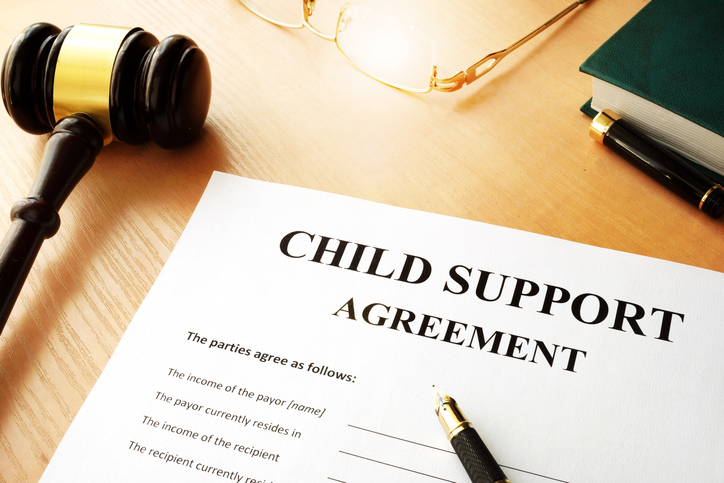Losing a job can place an immediate and heavy strain on finances, especially when there is an existing obligation to pay child support. The process of requesting a child support modification for job loss often involves legal filings, court reviews, and waiting periods before any changes take effect. During that time, the original order remains enforceable, creating a gap where payments may be difficult to maintain. Understanding temporary relief options while your petition is pending can help prevent arrears, reduce financial pressure, and keep you compliant with legal obligations.
The Financial Strain of Job Loss Before Modification Takes Effect
A child support modification for job loss is designed to address a substantial change in income, but court systems rarely adjust payments overnight. The time between losing employment and obtaining an official modification can range from several weeks to several months. During this period, unpaid amounts accumulate and may be considered arrears, potentially leading to enforcement measures such as wage garnishment or suspension of a driver’s license. For many parents, finding short-term legal or administrative relief is essential to staying afloat until the court finalizes a new order.
Why Filing Immediately is Critical
The date a petition for child support modification for job loss is filed often determines when a new amount becomes effective. Courts in many states will only backdate modifications to the filing date, not the date of job loss. This means any delay in filing can result in months of payments that remain due at the original amount. Promptly submitting a petition is the first step toward securing both a long-term adjustment and eligibility for certain temporary relief measures.
Requesting a Temporary Court Order
In some jurisdictions, it is possible to request a temporary adjustment while a child support modification for job loss petition is pending. This usually requires filing a motion for temporary relief alongside the main petition. The court may grant a provisional reduction based on current income, unemployment benefits, and documented job search efforts. While not every state offers this option, it can significantly reduce the risk of overwhelming arrears during the waiting period.

Leveraging State-Specific Relief Programs
Several states operate assistance programs that can indirectly help parents manage support obligations during unemployment. For example, certain state agencies coordinate with unemployment offices to ensure child support withholding matches the reduced benefit amount. In rare cases, programs may suspend enforcement actions temporarily if a parent demonstrates a good faith effort to secure employment. Accessing these programs requires understanding local laws and often presenting documentation similar to what is needed for the main child support modification for job loss request.
Proof of Involuntary Unemployment
Courts reviewing a temporary relief request typically require evidence that the loss of employment was involuntary. Layoff letters, termination notices, or proof of company closure are important for establishing eligibility. Parents who quit voluntarily or were terminated for cause may face a higher burden of proof to secure any relief before the final hearing. This distinction can determine whether a judge grants provisional payment adjustments or insists on continuing the original amount until the modification is finalized.
Documenting Ongoing Job Search Efforts
Even while awaiting a ruling on a child support modification for job loss, demonstrating active job-seeking behavior is essential. Many courts consider this when deciding whether to grant temporary relief. Maintaining detailed records of job applications, interviews, and correspondence with potential employers can serve as evidence of good faith. Some states even require such documentation as part of compliance monitoring, which is especially important when seeking to avoid enforcement actions during the pending period.
Negotiating Informal Agreements with the Other Parent
In certain cases, parents can work out temporary arrangements for reduced payments without waiting for court intervention. While such agreements do not override the official order, they may prevent conflict and create goodwill that could influence the court’s perspective. However, any informal arrangement should still be documented, and parents should be aware that unpaid amounts under the original order could still be enforced later if no legal modification is granted.

Avoiding Enforcement While Awaiting a Hearing
Enforcement agencies can act quickly if child support payments lapse. Common measures include intercepting tax refunds, reporting to credit agencies, and even initiating contempt proceedings. Requesting a temporary stay on enforcement while a child support modification for job loss petition is pending may be possible, especially if supported by evidence of unemployment and job search efforts. While approval is not guaranteed, some judges consider it a reasonable accommodation under the circumstances.
Accessing Federal and State Guidelines
When pursuing temporary relief, reviewing state statutes and federal enforcement rules can clarify what options are legally available. The U.S. Office of Child Support Enforcement provides guidance for parents facing sudden unemployment, outlining how agencies may work with individuals to adjust payment schedules or reduce enforcement intensity. Resources such as the Administration for Children and Families also offer official information on rights and obligations during unemployment periods.
Understand the Modification Process
Parents seeking more detailed guidance on what happens when a co-parent loses a job can review how child support is modified if my ex loses their job for additional context on eligibility and legal steps. Understanding both temporary and permanent relief measures can help avoid costly mistakes and missed opportunities during the modification process.
Considering Mediation as a Short-Term Solution
While mediation does not change the legal order, it can serve as a tool for creating short-term agreements until a court decision is reached. This is especially useful when both parents want to avoid contentious enforcement measures during the unemployment period. Mediation agreements can include payment deferrals, reduced amounts, or in-kind contributions that help meet the child’s needs while respecting the paying parent’s financial limitations.

The Role of Unemployment Benefits in Payment Calculations
Unemployment compensation is often factored into temporary child support calculations while a child support modification for job loss petition is pending. Courts typically treat these benefits as income, though at a reduced rate compared to previous wages. This means that even if a parent cannot afford the full amount under the original order, the court may require partial payments proportionate to the unemployment income. Understanding how these calculations work can help set realistic expectations for temporary relief outcomes.
Final Considerations Before the Court Rules
The time between filing and the court’s ruling can be financially and emotionally stressful. However, parents who act quickly, document their circumstances thoroughly, and explore all available relief options are better positioned to avoid significant arrears. A well-prepared request for temporary relief alongside a child support modification for job loss petition can provide essential breathing room during the unemployment transition. Combining legal action with proactive communication and resource use is often the most effective way to manage obligations until the modification takes effect.




